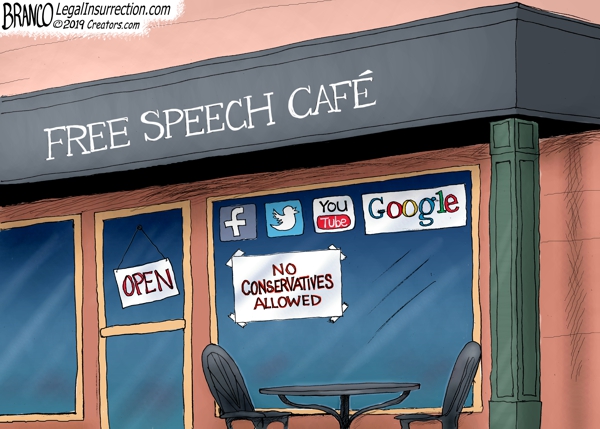Facebook, Twitter, and others have been hiding behind section 230(c) of the Communications Decency Act. It protects them from liability based on the content others publish on their platforms that they have been “editing” by their deliberate actions to suppress it. Mr. Trump says that makes them a publisher.
Related: Grok Page Still Has Reduced Distribution for Sharing “False” News That Wasn’t False
While the debate turns on the matter of free speech, this is actually about equity, equal access, and anti-discrimination based on ideas, beliefs, or ideologies. This is not a free speech issue so much as it is a matter of law and trade practice.
Twitter and Facebook enjoy legal protections from lawsuits if someone posts something there that defames others. They are platforms for delivery. The paper-boy who delivers the op-ed, not the publisher that wrote.
But they are publishers when they selectively choose to augment, editorialize, or remove content outside the limitations of the law. Mr. Trump is suggesting, outlined in this Executive order (EO Archived here). that there are consequences when you break the law.
It is the policy of the United States that the scope of that immunity should be clarified: the immunity should not extend beyond its text and purpose to provide protection for those who purport to provide users a forum for free and open speech, but in reality use their power over a vital means of communication to engage in deceptive or pretextual actions stifling free and open debate by censoring certain viewpoints.
The law exists primarily to protect minors from awful stuff.
In particular, subparagraph (c)(2) expressly addresses protections from “civil liability” and specifies that an interactive computer service provider may not be made liable “on account of” its decision in “good faith” to restrict access to content that it considers to be “obscene, lewd, lascivious, filthy, excessively violent, harassing or otherwise objectionable.” It is the policy of the United States to ensure that, to the maximum extent permissible under the law, this provision is not distorted to provide liability protection for online platforms that — far from acting in “good faith” to remove objectionable content — instead engage in deceptive or pretextual actions (often contrary to their stated terms of service) to stifle viewpoints with which they disagree.
Where is this all leading?
When an interactive computer service provider removes or restricts access to content and its actions do not meet the criteria of subparagraph (c)(2)(A), it is engaged in editorial conduct. It is the policy of the United States that such a provider should properly lose the limited liability shield of subparagraph (c)(2)(A) and be exposed to liability like any traditional editor and publisher that is not an online provider.
DOJ is instructed to consider such circumstances and to properly address them in the context of the law.
Federal Agencies are advised to end any advertising or funding with platforms that are openly violating the law by acting as a publisher that exercises viewpoint discrimination.
DOJ will work with federal telecommunications agencies and the FCC to evaluate the application of the conditions of section 230 and violations.
The FTC should consider matters of unfair or deceptive trade practices.
In other words, Twitter screwed up when it picked a Trump tweet to tag but not the fake-news or dishonest tweets of scores of Democrats or their media outlets.
The one thing I did not see, and I hope the DOJ adds this to their to-do list, is the matter of unreported in-kind political contributions to candidates whose content is not challenged, tagged as false or misleading, suppressed or removed.
The FEC needs to be involved as well just to make sure the armies of lawyers these liberal tech valley hypocrites pay have plenty to do.
One final point. This needs to restrict itself to fair practices and the question of portal versus publisher. Some, mostly on the left, will view this challenge as an opportunity to tweak legislation to control speech on the internet when the goal should be the opposite.
I think Mr. Trump did a decent job of not stomping on free speech in his pursuit of clarifying and enforcing sec 230, but there are hundreds of politicians all across the nation itching to use any excuse they can find to hamstring free speech.
We should encourage the former and oppose the latter.
